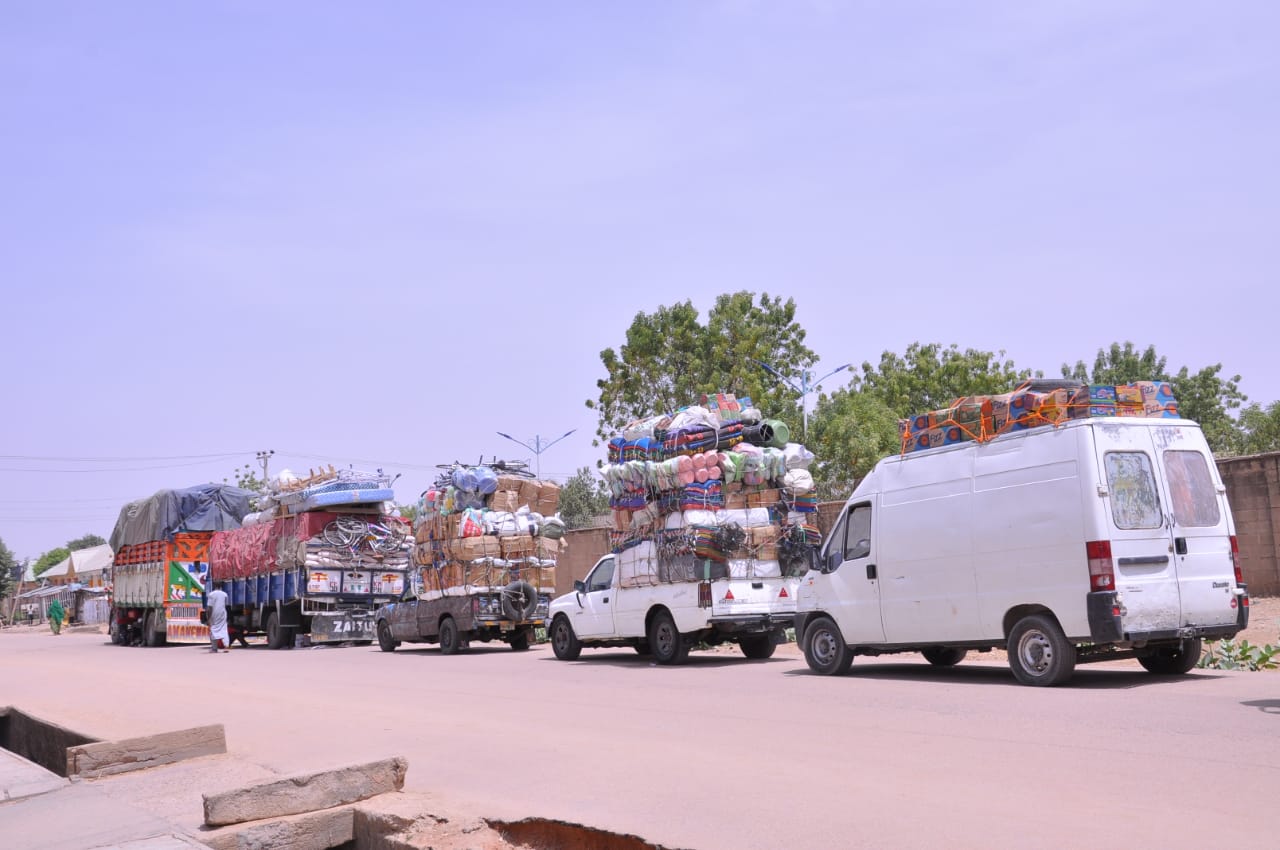PUNCH Online highlights the biggest news stories from around the country in this report.
The Federal Government withdrew an official statement and put a pause on another announced policy; the continent mourned the loss of a Nollywood icon, John Okafor, popularly known as Mr Ibu; and bandits made a devastating comeback, storming two schools in Kaduna and abducting pupils and teachers.
Here are the highlights from the week’s biggest news stories, from March 3 to March 9, 2024.
- Africa mourns the loss of Mr Ibu

Popular Nollywood actor, John Okafor, known as Mr Ibu, died at the age of 62.
He passed away on Saturday, March 2, 2024, in a Lagos hospital. His death came shortly after the passing of another actor, Quadri Oyebamiji, also known as Sisi Quadri.
Condolences have been pouring in from different regions, with the Actors Guild of Nigeria and other actors expressing their sympathy. Mr Ibu had been battling health problems, which led to the amputation of his legs, and his final years were marked by controversy and family disputes. He was widely mourned by local media in Ghana, South Africa and other African countries. He leaves behind a legacy of laughter and memorable performances in Nollywood.
- Attacks on warehouses
Incidents of attacks on warehouses and food trucks were reported in some parts of the country. Following the looting of warehouses in Abuja by suspected hoodlums, security has been increased at National Emergency Management Agency warehouses nationwide.
Police commands in various states have deployed personnel to safeguard warehouses and food stores. The government has stressed the importance of maintaining social harmony and urged Nigerians to protest responsibly amid economic challenges.
- Food security
Moreover, the Nigeria Customs Service and the Economic and Financial Crimes Commission intercepted 141 trucks attempting to smuggle grains and staples to neighboring countries. President Bola Tinubu has directed intercepted trucks to be redirected to local markets to stabilize prices.

Meanwhile, truck drivers, facing frequent attacks by hoodlums, have threatened to strike if the situation continues. Attacks on trucks and warehouses have increased due to rising food prices and cost of living challenges. Truck owners cautioned that continued attacks on their vehicles may lead to a stop in the transportation of food and fuel commodities. They called for improved security measures and urged state governments to address the issue to avoid further disruptions in supply chains.
The government aims to address food scarcity through long-term measures, including partnerships with organizations like the World Food Programme and efforts to enhance agricultural productivity.
Meanwhile, the Minister of Agriculture and Food Security, Abubakar Kyari, attributes food scarcity to factors such as smuggling, flooding, and policy decisions.
- Blackouts at dance clubs
The government said it might take away the right of power distribution companies that are deliberately not providing electricity to people, causing widespread power outages in Nigeria.
Even though the Ministry of Power and electricity generation companies are trying, many distribution companies are not successfully giving out the power that the Transmission Company of Nigeria gave them.
The Minister of Power, Chief Adebayo Adelabu, expressed unhappiness about the decrease in power supply and warned that distribution companies that are intentionally not performing well may have their licenses taken away.
The government wants to focus on fixing broken transmission infrastructure in order to improve power supply in affected areas.
New information showed that distribution companies did not give out about 1,769.91 megawatts of electricity between February 1 and 14, 2024. Adelabu has called on distribution companies and TCN to deal with the bad power supply situation and repeated plans to pay off debts owed to power generation and gas supply companies. He told electricity customers to be patient while attempts are made to improve the power supply situation in Nigeria.
- Criminals attack schools
In Kaduna State, more than 280 students and teachers from Government Secondary School and LEA Primary School in Kuriga were taken by criminals.
The attack happened right after militants kidnapped 200 internally displaced women in Borno State.
Governor Uba Sani of Kaduna State assured the community that efforts were being made to save the kidnapped people, while Amnesty International and other groups asked the government to act quickly to make sure the students and teachers come back safely.
Talks for the release of the kidnapped students and teachers have started, PUNCH Online says on Saturday. The state government has asked a well-known negotiator with experience in making such releases happen. At the same time, the military has started looking for the victims in the forests.
- Lowest pay and differences between regions
It was a week of give and take about the lowest pay as workers in different states suggested various amounts for the new lowest pay. In the South-West, the Nigerian Labour Congress suggested a minimum pay of N794,000, while the Trade Union Congress proposed N447,000. In the Federal Capital Territory and the North-Central region, workers asked for N709,000 as the lowest pay. On the other hand, in the North-West, workers requested N485,000.
The North-East saw different suggestions, with Taraba and Gombe states proposing N60,000, Bauchi and Adamawa states asking for a 50% increase in the current pay, and Borno and Yobe states agreeing to accept the final proposal of the presidential tripartite committee.
In the South-South, workers suggested N850,000, while the South-East proposed N540,000, with Enugu State’s TUC suggesting N447,000. These different suggestions show the difficulty of deciding on a uniform lowest pay that addresses the different economic situations and cost of living in Nigeria's regions.
- Cancellation I: Foreign Worker Hiring Fee
The government’s decision to make companies pay a fee for hiring foreign workers was suddenly canceled after President Bola Tinubu launched it. The fee is a payment that employers who hire foreign workers have to make. Companies have to pay $15,000 for expatriate directors and $10,000 for other groups.
Not adhering to certain rules, like not submitting an EEL, failing to register an employee, giving false information, or not renewing the EEL within 30 days, can lead to fines of up to N3 million for each offence.
The sudden pause happened amid widespread criticism from private sector groups, expressing worries about its potential negative impact on Foreign Direct Investment and economic stability, specifically the devaluation of the naira.
- Reversal II: UAE visa U-turn
The statement about lifting visa restrictions for Nigerian travelers by the United Arab Emirates caused a lot of attention at first, but was quickly taken back. The President's Special Adviser on Information and Strategy, Bayo Onanuga, posted a document online indicating that the suspension had been lifted, which caused widespread attention.
However, soon after, Onanuga clarified that the UAE had not resumed issuing visas to Nigerians and denied that the circulated document was authorized by either government.
This series of events left many people confused and questioning the reliability of official communications.
Furthermore, the reversal shows a larger pattern of uncertain relations between Nigeria and the UAE.
The UAE prohibited citizens from Nigeria and 19 other African countries from entering its borders in 2022.



